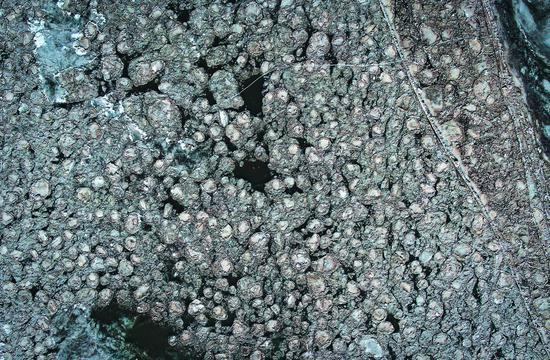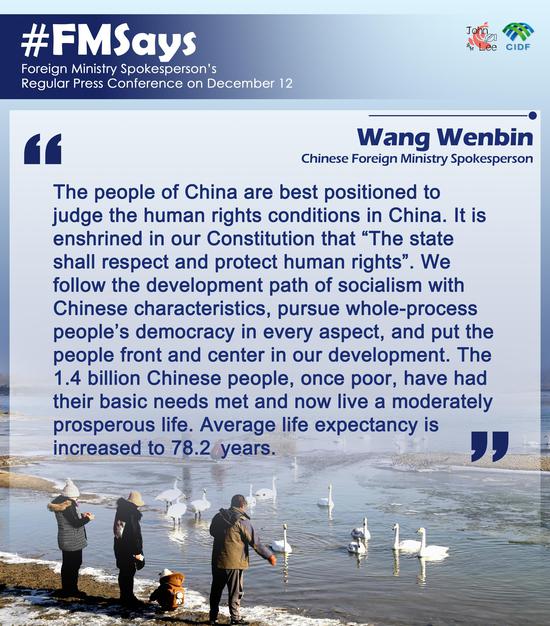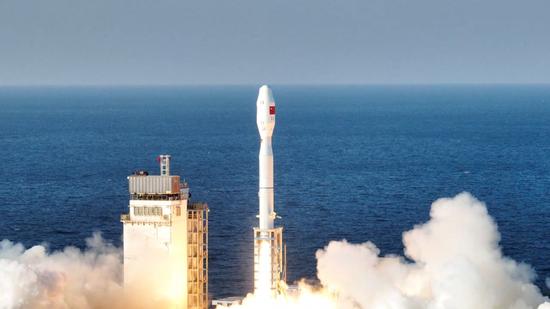People continue under strains as energy drives a spike in costs
While the U.S. Federal Reserve has persistently attempted to tame inflation this year, the government continues to spend heavily as it runs record-high budget deficits.
The November U.S. budget deficit jumped by $57 billion or 30 percent from a year earlier to $249 billion, a record for the month, as revenues fell and outlays for education, healthcare and interest on public debt rose sharply, the U.S. Treasury reported on Dec 12.
Receipts for November fell 10 percent, or $29 billion, from a year earlier to $252 billion, while outlays rose 6 percent or $28 billion to $501 billion, also a record for November.
"The present inflation has been caused by the huge increase in federal government spending, which was accommodated by the Fed," said Raymond Hill, a senior lecturer in finance at the Goizueta Business School at Emory University in Atlanta.
"As is almost always the case, government spending is the fundamental culprit here, with the Fed abetting (driving the getaway car)."
Driving the revenue decline was a 4 percent drop in individual withheld tax receipts, a 64 percent increase in individual tax refunds, and a 98 percent decline in Federal Reserve earnings, the Treasury said.
"The big deficit was primarily due to a significant drop in government receipts even as the Biden administration continued to spend at a torrid pace," Michael Maharrey wrote on Dec 13 on schiffgold.com, which focuses on investments in precious metals.
"The U.S. government can't keep borrowing and spending without the Fed monetizing the debt. It needs the central bank to buy Treasuries to prop up demand. Without the Fed's intervention in the bond market, prices will tank, driving interest rates on U.S. debt even higher.
"Either the government will have to cut spending or the Fed will have to keep creating money out of thin air in order to monetize the debt."
For the first two months of fiscal 2023, which started on Oct 1, the Treasury's interest payments were up $48 billion, or 87 percent, the department said.
Debt-to-GDP ratio
If interest rates remain elevated or continue rising, the interest could become one of the top three federal expenses, Maharrey wrote, adding that the U.S. debt-to-GDP ratio stands at 121.85 percent.
On Wednesday the U.S. House of Representatives approved a stopgap one-week funding bill, a move intended to give lawmakers more time to pass a bill to fully fund the federal government for the fiscal year.
Congressional negotiators announced on Tuesday that they had agreed on a framework for the bill. They did not reveal the amount they had agreed on, though it is expected to be about $1.7 trillion.
The measure was needed to avert a partial shutdown of federal agencies that would otherwise have begun on Saturday.
House Republicans opposed a full-year bill, saying they would prefer to vote on funding the government early next year when they take majority control of the chamber and will have more power to pare domestic spending.
The one-week extension was approved by a vote of 224-201, with all congressional Democrats and nine Republicans voting in favor.
Hill said that during the pandemic, emergency spending "was certainly helpful in cushioning the economic effects of COVID, but the federal government overdid it; and the Fed was persistently wrong in recognizing how its low-interest rate and quantitative easing would ensure that the excessive spending became inflationary".
"I think it is worth noting that the administration has argued that since inflation has been worldwide it can't have been caused by U.S. government prodigality."
However, he said that contention is "only true to the extent" that governments and central banks elsewhere "have all made the same mistakes". Hill said that the case by the White House "also ignores the fact that the dollar is the world's currency for reserves and trade, so U.S. inflation is transmitted throughout the world".
"When the Fed keeps U.S. interest rates low, other countries must also have easy-money policies to prevent their currencies from rapidly appreciating relative to the dollar."
Ken Fisher, chairman of Fisher Investments, believes the central bank is missing signs of prices already receding.
"Take crude oil's price, an obviously important input. … But after March's peak, supply channels shifted, production grew and oil prices slowly stumbled — now off 42 percent to December 2021 levels," Fisher wrote in the New York Post on Tuesday.
"Energy helped drive a spike in consumer prices, but will now nudge us toward stability. The price of crude oil peaked in March but has steadily fallen after production grew.
"COVID-era supply chain snafus are abating everywhere. Shanghai freight rates fell 77 percent from January's high. America's logistics managers' index revealed transportation prices contracting while capacity remains ample."
Fisher said: "Others fret that tight labor markets are propelling inflation. Wrong. Nobel laureate Milton Friedman long ago proved wages follow prices — always — not the reverse. Regardless, payroll gains have slowed significantly."
Robert Reich, former U.S. labor secretary during the first Bill Clinton administration, expressed concern over the Fed's persistent rate rises.
Rising labor overheads
"Labor costs increased 5.3 percent over the past year. But prices rose 7.1 percent. The real purchasing power of American workers continues to drop. This is absolutely not the time for more interest rate hikes that make it even harder for working people to keep the lights on. Hello?"
Wharton School Professor Jeremy Siegel told CNBC on Friday: "I think the Fed is making a terrible mistake.… Inflation is basically over despite the way Powell characterizes it."
But recent signs of inflation ebbing do not mean that the battle has been won, the Chairman of the Federal Reserve Jerome Powell said on Wednesday.
He spoke after the Fed's policy-setting committee raised its benchmark overnight interest rate by half a percentage point and projected it would rise above 5 percent next year, the highest level since a steep economic downturn in 2007.
The rate rise on Wednesday, which was approved unanimously by the Federal Open Market Committee, lifted the target policy rate to the 4.25-4.5 percent range.
"The largest amount of pain, the worst pain, would come from a failure to raise rates high enough and from us allowing inflation to become entrenched," Powell said.
"The inflation data received so far in October and November show a welcome reduction in the pace of price increases, but it will take substantially more evidence to give confidence inflation is on a sustained downward path."
A U.S. Labor Department report on Tuesday said consumer prices rose 7.1 percent on an annual basis in November, while the core rate, which excludes volatile food and energy prices, rose 6 percent. Inflation reached 9.1 percent in June, a four-decade high.
Powell was also asked whether the Fed may consider raising its 2 percent inflation target.
"We're not going to consider that. Under any circumstances," Powell said. "We're going to keep our inflation target at 2 percent," he said, although "there may be a longer-run project" that could review that target.
On Wednesday the economist and financial commentator Peter Schiff said: "If the Fed raised its inflation target up to 3 percent it would lose all remaining credibility. If it gives up on 2 percent because it becomes too painful to maintain, it will likely do the same thing with 3 percent once that rate becomes too painful to maintain. The target becomes meaningless.
Powell had said "the worst pain for Americans would result if the Fed failed to act and let inflation run out of control", Schiff said. "Inflation is already out of control, and the time for the Fed to have acted to prevent it without triggering a severe financial crisis has long since (passed)."


















































 京公网安备 11010202009201号
京公网安备 11010202009201号